OUR INITIATIVES FOR
THE ENVIRONMENT
ADDRESSING
CLIMATE CHANGE
Targets for reducing greenhouse gas emissions across the supply chain by 2030
Greenhouse gas (GHG) emission continues to be one of the most significant global environmental issues. Fast Retailing, the operator of the UNIQLO and GU brands, aims to reduce GHG emissions across all of our activities – from product manufacturing to disposal – to reduce the impact of our business on climate and biodiversity. We are now working towards specific targets that honor the goals set in the Paris Agreement on Climate Change to reduce greenhouse gases emissions by 2050, in accordance with the United Nations Framework Convention on Climate Change.
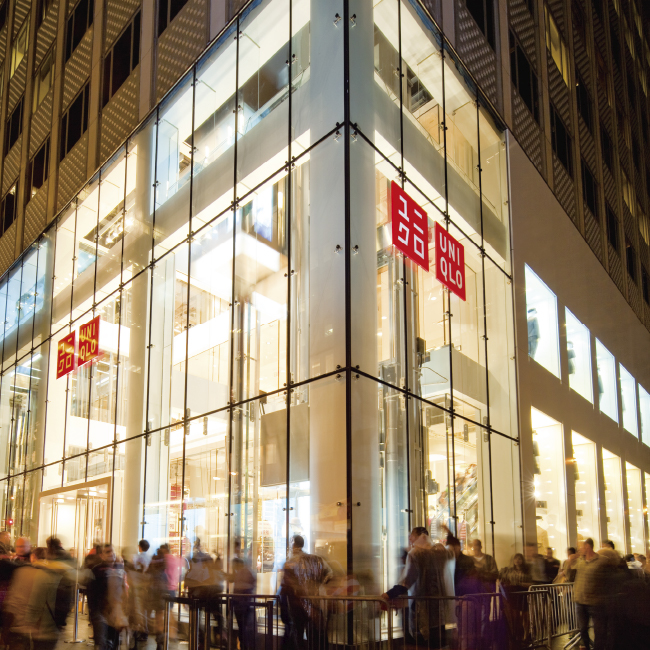
Reducing greenhouse gas emissions by 90% from our own operations, including stores and offices
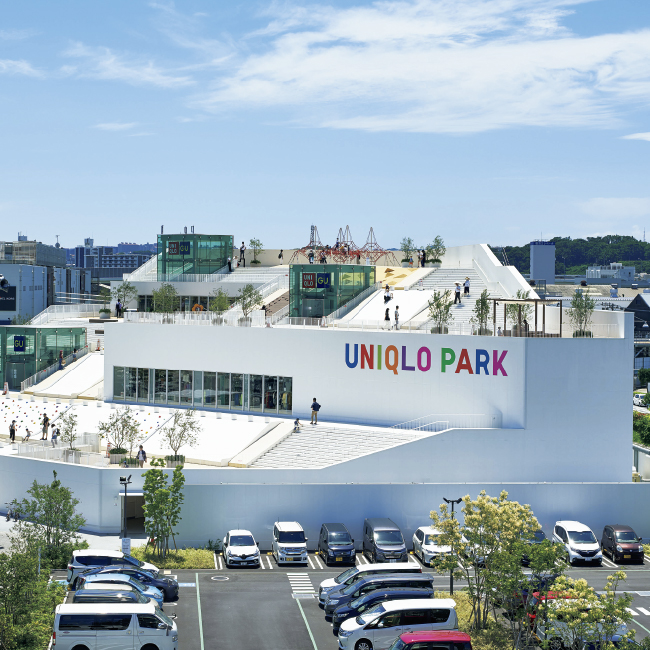
Conserving energy in our stores
At UNIQLO and GU, we are working hard to reduce GHG emissions by lowering our electricity consumption. Through a program to install LED lighting at UNIQLO stores throughout Japan, among other measures, we aim to reduce GHG emissions by 10% per unit of floor area by the end of fiscal 2020 (compared to fiscal 2013 levels). We have now successfully introduced LED lighting in 782 UNIQLO stores (96.5% of total stores) and 397 GU stores (97.3%),(*1) representing a reduction in GHG emissions of approximately 38.7% per unit of floor area.(*2) We are also striving towards greater energy efficiency by installing air conditioning control systems that automatically regulate ambient temperature. Eight UNIQLO stores in Japan, including our UNIQLO PARK Yokohama Bayside Store, have acquired Gold Level LEED® (Leadership in Energy and Environmental Design) certification in the Building Operations & Maintenance (O+M) category.(*3)
*1 At the end of fiscal 2021
*2 At the end of fiscal 2020
*3 At the end of fiscal 2021
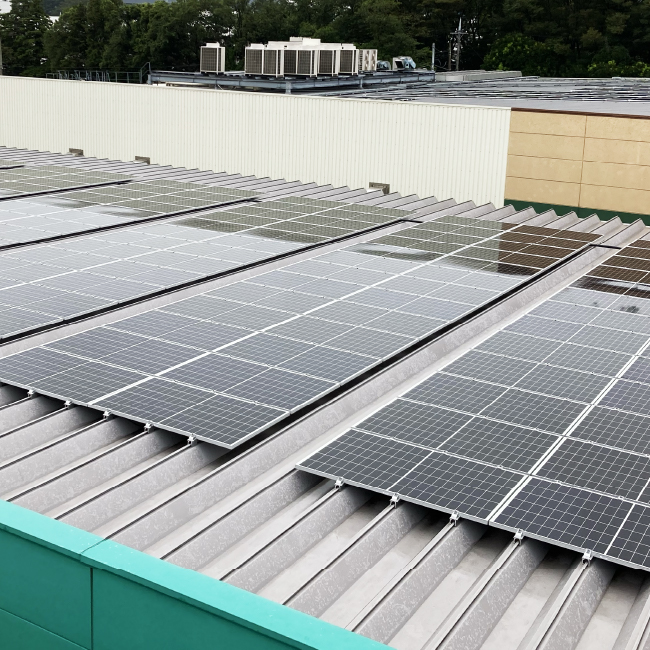
Introducing renewable energy
By fiscal 2030, we aim to source 100% of the energy used in our stores and offices worldwide from renewable sources. To date, we have already completed the switch to 100% renewable energy in our stores in Europe, North America, Vietnam, Indonesia, and Thailand. Efforts are now focused on introducing renewable energy in UNIQLO and GU stores across Japan, starting with the installation of solar panels at 13 stores.(*4)
*4 At the end of fiscal 2021
Reducing greenhouse gas emissions by 20% in the production of raw materials, fabric, and garments
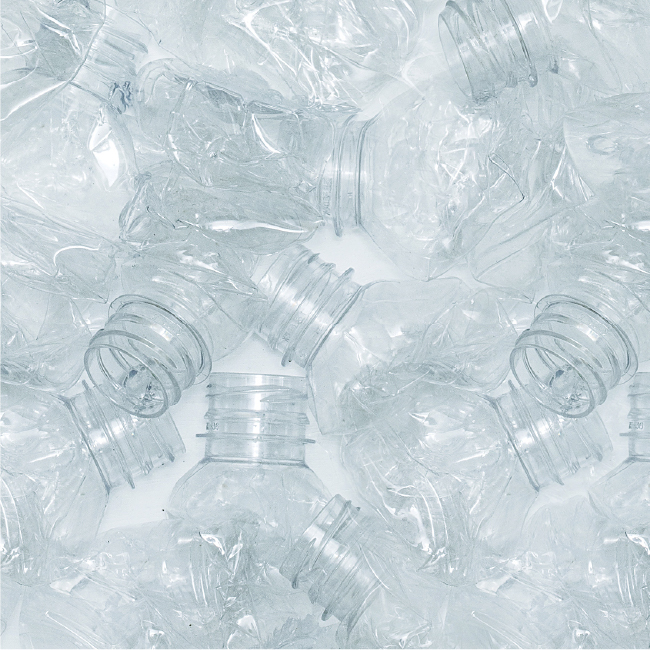
Raw materials
From the product planning stage through to the production stage, we aim to select and use raw materials that generate lower levels of GHG emissions. We are also aiming to increase the proportion of recycled materials used in our products to approximately 50% by fiscal 2030. So far, we have used recycled polyester fibers in our DRY-EX and Fluffy Fleece clothing items. Going forward, we intend to expand the use of materials that place a lower burden on the environment, starting with synthetic fibers such as rayon and nylon.
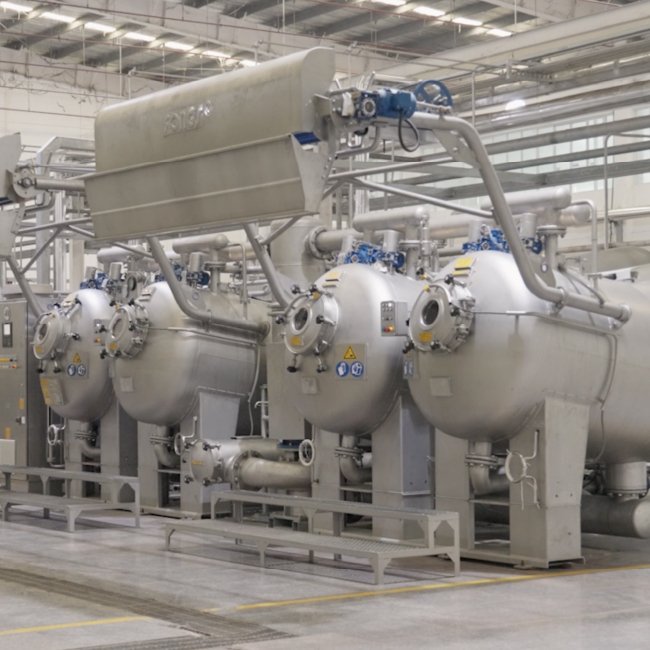
Fabric production and sewing
As part of the UNIQLO Responsible Mill Program conducted between 2016 and 2020, we set and successfully achieved a target to reduce energy usage by 10% at UNIQLO’s core garment factories and fabric mills (compared to 2016 levels) by the end of 2020. From fiscal 2021 onwards, we are leveraging our strong partnerships with production factories to steadily reduce GHG emissions in our supply chain to the fiscal 2030 target level. As part of these efforts, we have identified the chief issues at each of our core partner factories, which collectively account for 90% of UNIQLO and GU manufacturing. We have also formulated a Greenhouse Gas Emissions Reduction Plan that incorporates energy-saving measures, decarbonation efforts, and the introduction of renewable energy. Further, we have strengthened our Production and Sustainability departments to ensure that our plans for reducing GHG emissions are implemented, and continue to monitor progress and manage these projects.
Most Viewed Contents
-
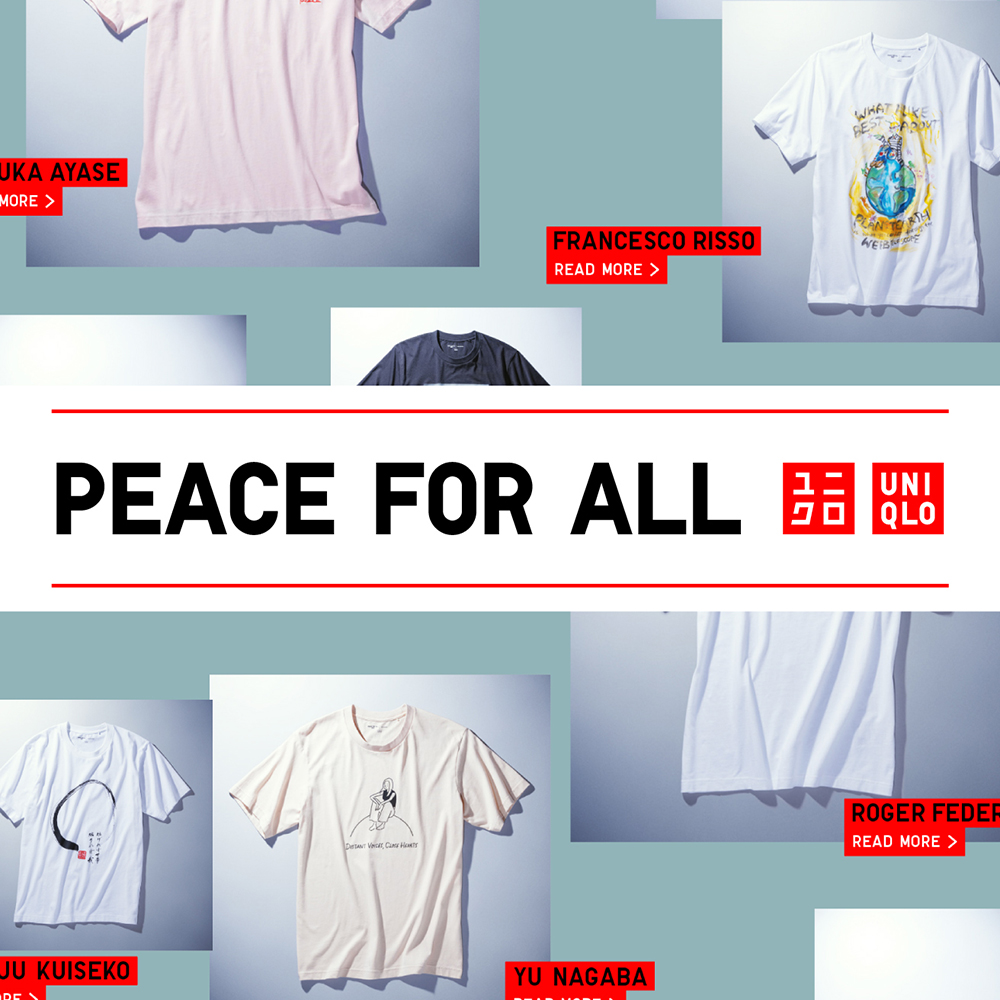
PEACE FOR ALL
A SINGLE T-SHIRT HAS THE POWER TO SPREAD PEACE. “It’s time for action, in the name of world peace.” Major figures who share this vision with...
Read More
-
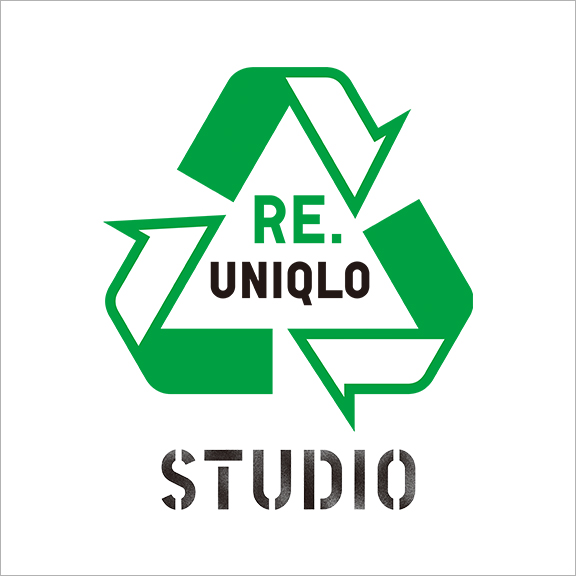
RE.UNIQLO STUDIO
Your UNIQLO clothes have a long life ahead of them. We're creating something positive for the future by keeping UNIQLO items in circulation....
Read More
-

UNIQLO DOWN RECYCLE
Recycling clothes into clothes, UNIQLO’s latest challenge that opens up new links between people, clothing, and the global environment. We are...
Read More
-
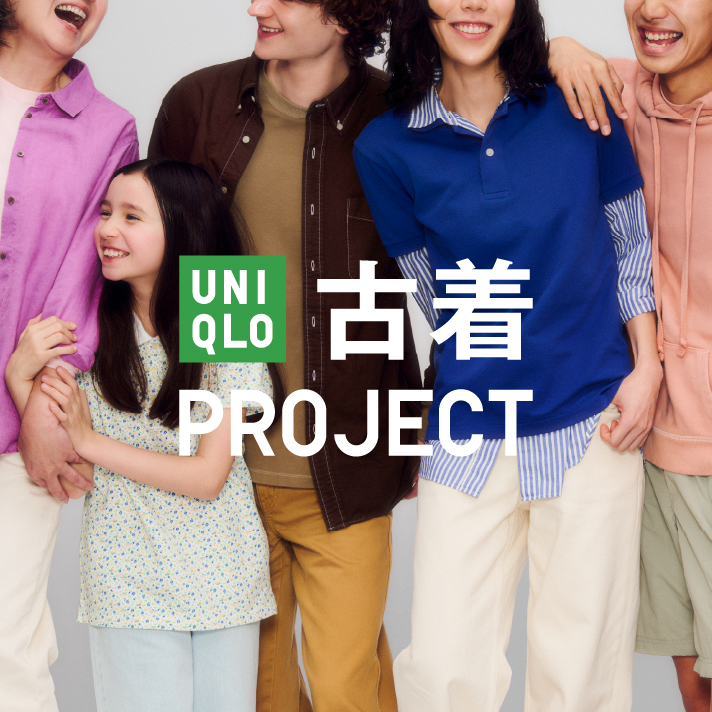
UNIQLO PRE-OWNED CLOTHES PROJECT by RE.UNIQLO
Once you’ve made the most of your clothes, it’s time to recycle. RE.UNIQLO is working towards a circular society by selling pre-owned clothes.....
Read More
Recommended Contents
-

RE.UNIQLO
Can your old clothing improve the future? Yes! At UNIQLO, we recycle your used garments through our circular sustainability programs. Take our recycled down ini...
Read More
-
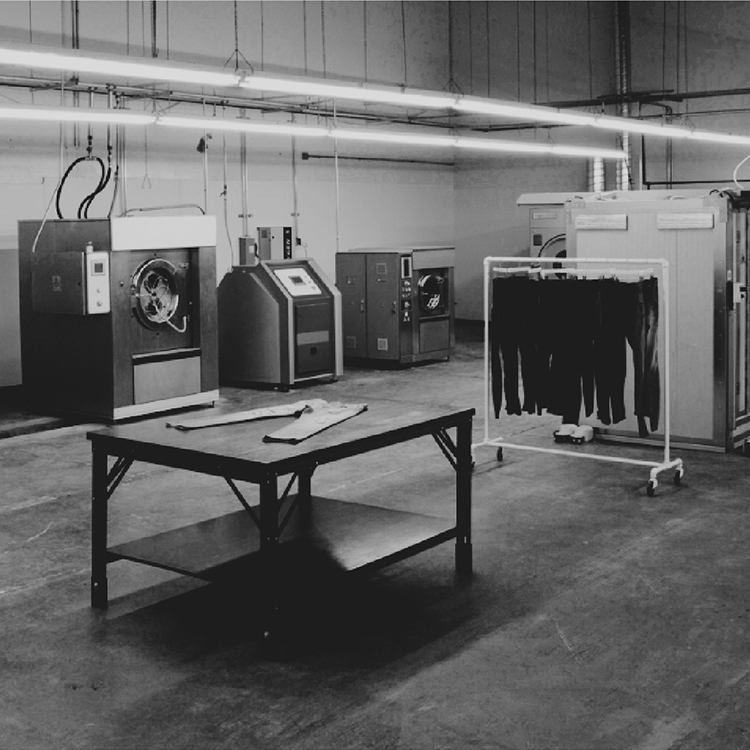
JEANS INNOVATION
At the JEANS INNOVATION CENTER in Los Angeles, California, UNIQLO is rethinking the way that jeans are made by updating the methods...
Read More
-

GENDER
All women should be able to pursue their dreams and forge a new tomorrow. We want to see women enjoy infinite possibilities. Believe in a world that enables wom...
Read More
-

PREPARING CLOTHES FOR AN EMERGENCY DISASTER
UNIQLO has aided disaster victims around the world over the past 20 years. It has learned in the process that few people prepare clothing kits for such emergencies...
Read More
Newest Contents
-

UNIQLO PRE-OWNED CLOTHES PROJECT
Once you’ve made the most of your clothes, it’s time to recycle. RE.UNIQLO is working towards a circular society by selling pre-owned clothes.....
Read More
-
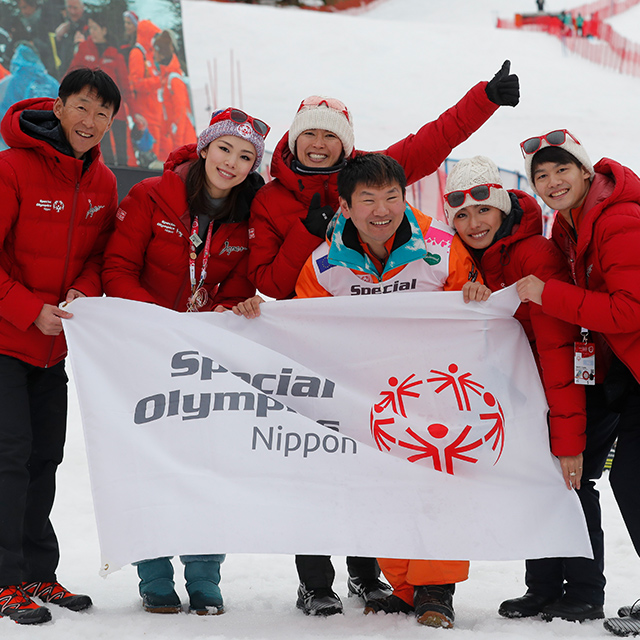
SPECIAL OLYMPICS
Special Olympics is an international organization that provides sports training and competition for people with intellectual disabilities...
Read More
-

JEANS INNOVATION
At the JEANS INNOVATION CENTER in Los Angeles, California, UNIQLO is rethinking the way that jeans are made by updating the methods...
Read More
-
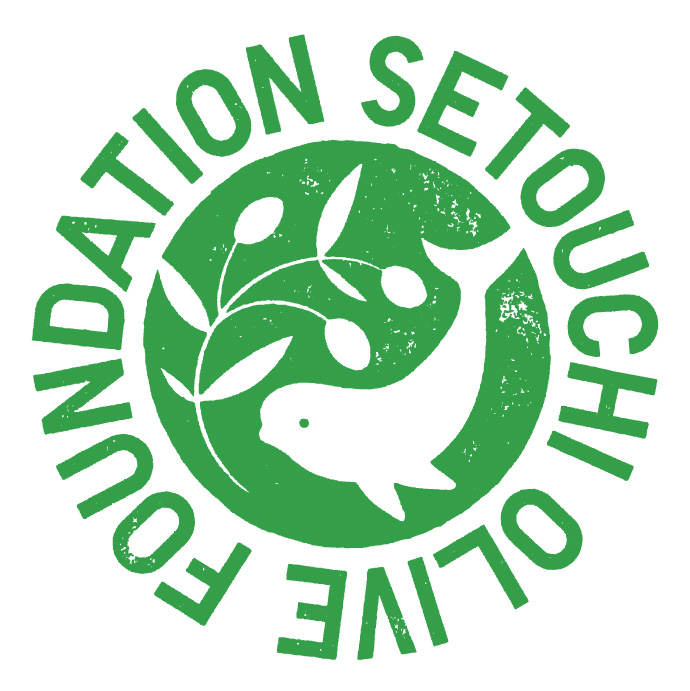
THE SETOUCHI OLIVE FOUNDATION
The Setouchi Olive Foundation is a not-for-profit organization established by world-renowned architect Tadao Ando and Kohei Nakabo....
Read More


